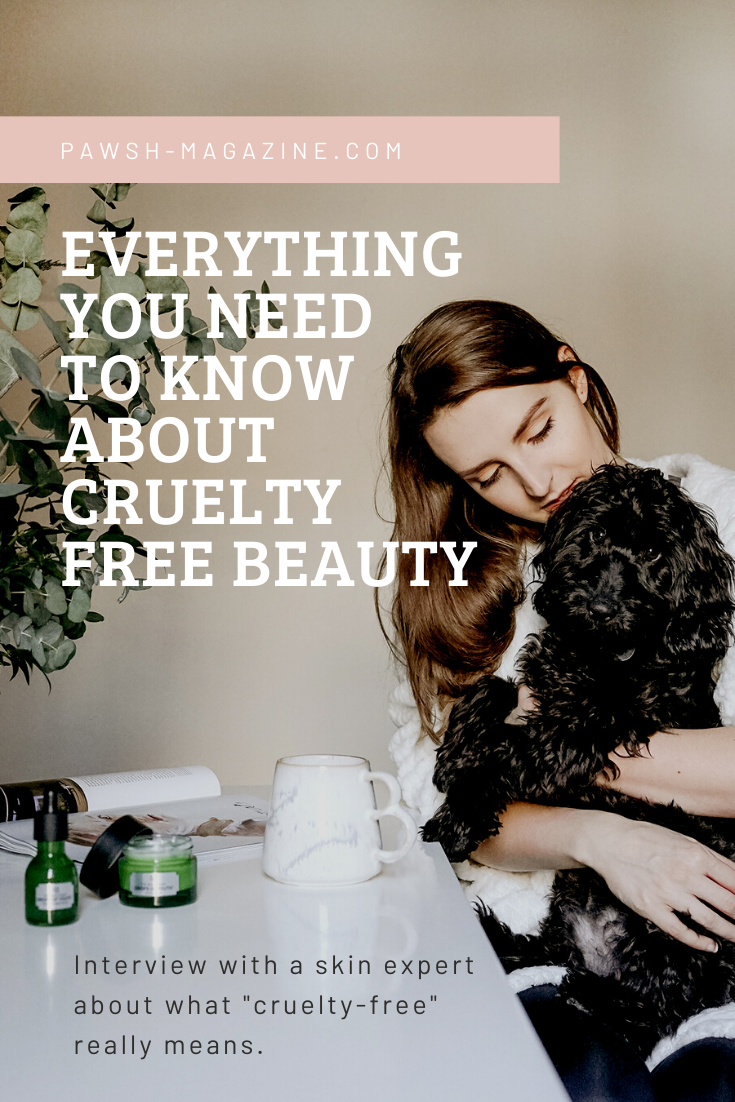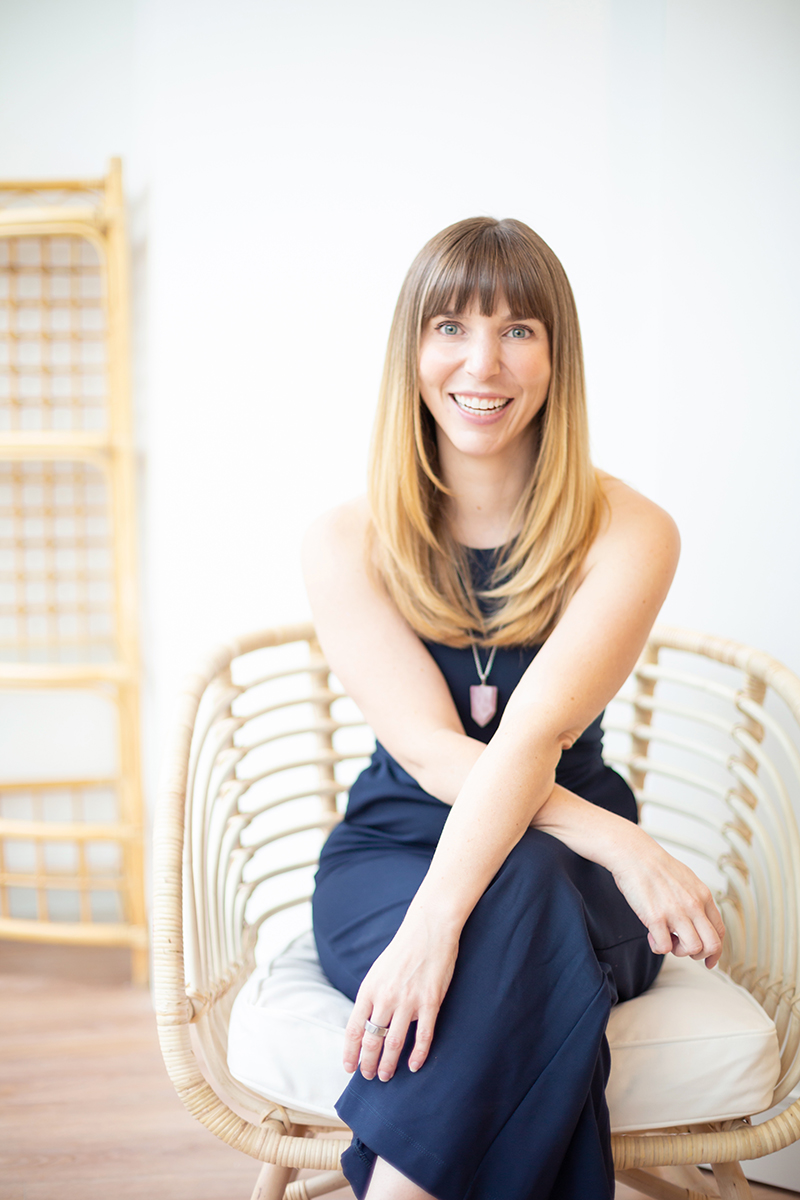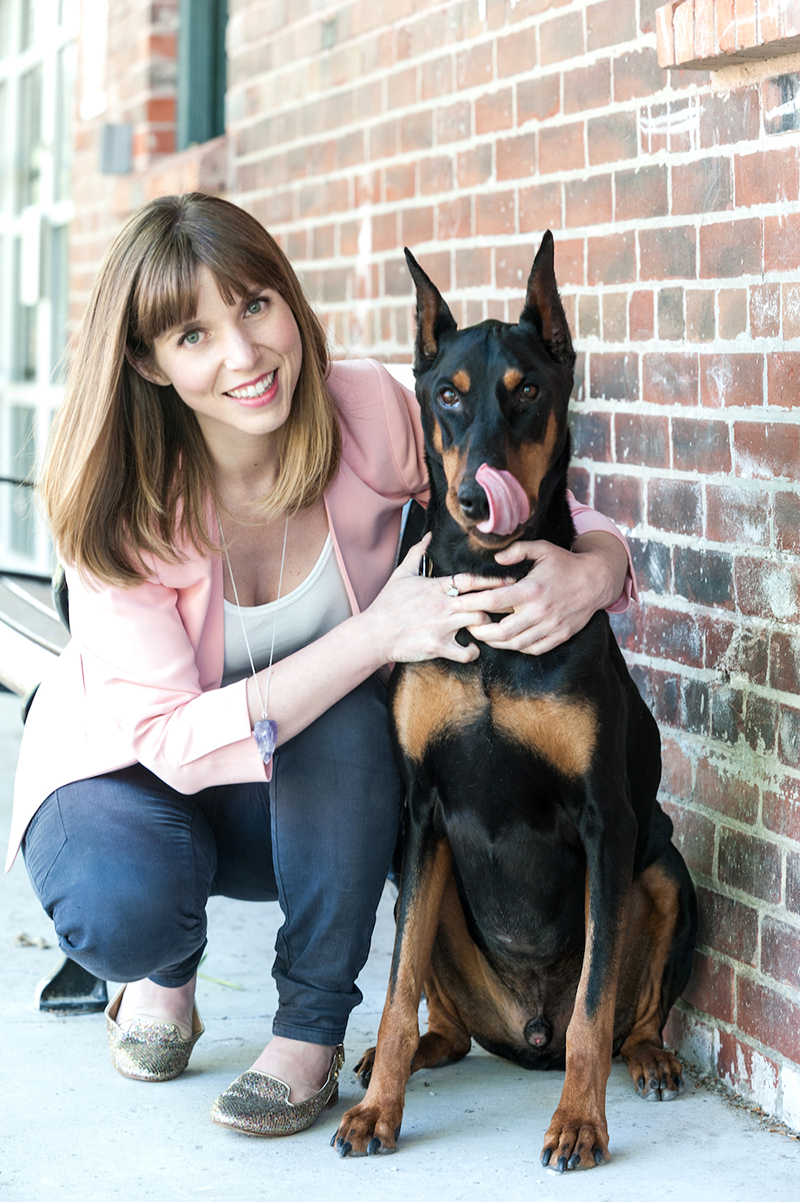 As dog parents and all-around animal lovers, when it comes time to shop for our skincare and beauty routines it’s only natural that we want to reach for cruelty-free cosmetic products. But in this hectic modern world where labels don’t necessarily tell you everything and pretty packaging can detract from true messaging, where is a dog lover to even begin? So we decided to chat with Dr. Jen Newell, ND, skin health expert, about all of our cruelty-free beauty FAQs.
As dog parents and all-around animal lovers, when it comes time to shop for our skincare and beauty routines it’s only natural that we want to reach for cruelty-free cosmetic products. But in this hectic modern world where labels don’t necessarily tell you everything and pretty packaging can detract from true messaging, where is a dog lover to even begin? So we decided to chat with Dr. Jen Newell, ND, skin health expert, about all of our cruelty-free beauty FAQs.
Introducing Natural Skincare Expert
Dr. Newell ND
 Dr. Newell ND is the founder of a groundbreaking Toronto skin clinic that specializes in resolving chronic and acute skin conditions. She opened the doors to CONNECTED Health & Skin after seeing a need for an integrative and functional medicine approach to corrective skincare.
Dr. Newell ND is the founder of a groundbreaking Toronto skin clinic that specializes in resolving chronic and acute skin conditions. She opened the doors to CONNECTED Health & Skin after seeing a need for an integrative and functional medicine approach to corrective skincare.
“After a decade in the skincare world, I saw a significant gap in what was being offered. That gap revolved around health and beauty rarely being associated with one another – their connection is commonly overlooked,” says Newell. “Additionally, in general, anything to do with beauty is marketed by preying on women’s insecurities, rather than offering support. I wanted to change that.”
She also co-founded a beautifully curated online skincare shop called NaturalDermStore. NaturalDermStore values a natural, evidence-based approach to skincare where you don’t have to compromise your health for beauty. And if that wasn’t enough to get excited about, everything in NaturalDermStore is also cruelty-free.
We couldn’t wait to pepper Dr. Newell ND with all of our questions about cruelty-free beauty products — and we learned so much!
It’s a term that is growing in popularity, but what exactly does ‘cruelty free’ mean?
Cruelty Free is a term and label used for products or activities that do not harm or kill animals in their production or manufacturing. This term includes the sources of the products’ ingredients too. This includes products that take a stand against animal testing. I also believe that cruelty-free should also include how those who cultivate the ingredients for a product and produce the final product are treated. No product should harm other living creatures, both animal or human.
Are there any common ‘green-washing’ trends that consumers should be mindful of when shopping for cruelty-free products?
Companies of all sizes use green-washing to trick consumers through creative branding into believing they are choosing healthier and more eco-friendly options. By using specific phrases, like “all-natural” or “sustainably produced,” and visuals associated with health and nature, companies sometimes give the impression they are more environmentally friendly and healthier than they truly are.
I encourage consumers to research the companies from whom they are purchasing products. The more you know about the ethics of the company and what they and their founders stand for, the better you are able to make informed decisions. Look for companies that align with your ethics. This is also helpful since you can’t necessarily trust the labels on products.
Another tip I recommend when shopping for cruelty-free products is to look for trustworthy seals like the Leaping Bunny. LEAPING BUNNY is the only internationally recognized certification organization for cruelty-free brands. It requires independent audits to verify the cruelty-free claims are true. This is considered the gold standard in cruelty-free certification for personal care and household product companies. It indicates no animal testing at any stage of development.
Are cruelty-free beauty products healthier for our skin?
Cruelty Free products are not necessarily healthier for our skin since our skin is not aware of how products are created and made. Despite claims that regulations on skincare and personal care products are not sufficient, all products and ingredients undergo testing to ensure safety. And as research develops those regulations and what is permitted in products changes.
Cruelty Free products tend to be “cleaner” and use more natural ingredients, but it is a mistake to assume that that makes them better for our skin. While I prefer and recommend more natural products, I also don’t believe that all synthetic ingredients are unsafe. This is why it is important to understand what ingredients do and to select products based on your goals or unique needs.
Where did your passion for and commitment to cruelty-free products come from or begin?
 I have been an animal-lover my entire life. It never made sense to me that we would test products on animals when we had the technology and ability to test for safety and efficacy in other ways.
I have been an animal-lover my entire life. It never made sense to me that we would test products on animals when we had the technology and ability to test for safety and efficacy in other ways.
What are some of your favourite cruelty-free beauty brands of all time and why?
I could go on for days talking about some of the amazing cruelty-free brands that I love.
One of my all time favourites is Fitglow Beauty – this brand was created by a fellow animal-loving woman that has also become a very dear friend to me. Fitglow Beauty makes some of my favourite makeup and skincare products. They are committed to producing cosmetics that nourish and benefit the skin. Fitglow Beauty Lip Colour Serums are my all-time favourite lip products! I am pretty sure I have every colour and they are gorgeous, hydrating and leave your lips soft (not sticky).
Next up is Hurraw! Lip Balm. I love that this brand is so transparent with it’s commitment to cruelty-free, sustainable practices. They are Ecocert certified. Ecocert is the world’s leading specialist in the certification of sustainable practices. COSMOS is a rigorous certification for natural cosmetics. It is highly respected for its very precise, legit and thorough yearly auditing processes. You can get more information about all their practices here.
How do you know if products are cruelty-free?
The best way to determine if a product is cruelty-free is to do a little research into the company. Research its practices too. Companies should be proud of the fact that they are doing good and will share that. And, as I mentioned, look for the Leaping Bunny certification!
Does being vegan and being cruelty-free mean the same thing with beauty products?
This doesn’t necessarily mean the same thing. A vegan product can still undergo animal testing or include ingredients that were tested on animals. Or the company that makes the product may do testing on animals or include animal-derived ingredients in other products. You may also want to look at the parent company. If the brand is owned by a larger corporation, consider their ethics.
What’s something you wish people were more aware of when it comes to cruelty-free beauty and skincare products?
I think that the more people are aware of the fact that they can make a difference simply by making an informed choices and learning more about the companies and brands they are supporting. This small change can have a huge impact.
Thank you for answering our questions!
To shop cruelty free skincare and beauty products find NaturalDermStore on Instagram!
***
{Photography: Leading Image by Toa Heftiba | Others by Gooseberry Studios}
